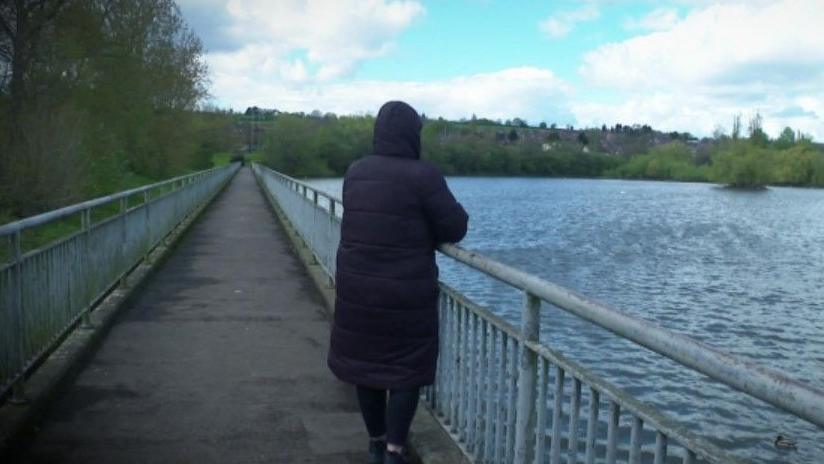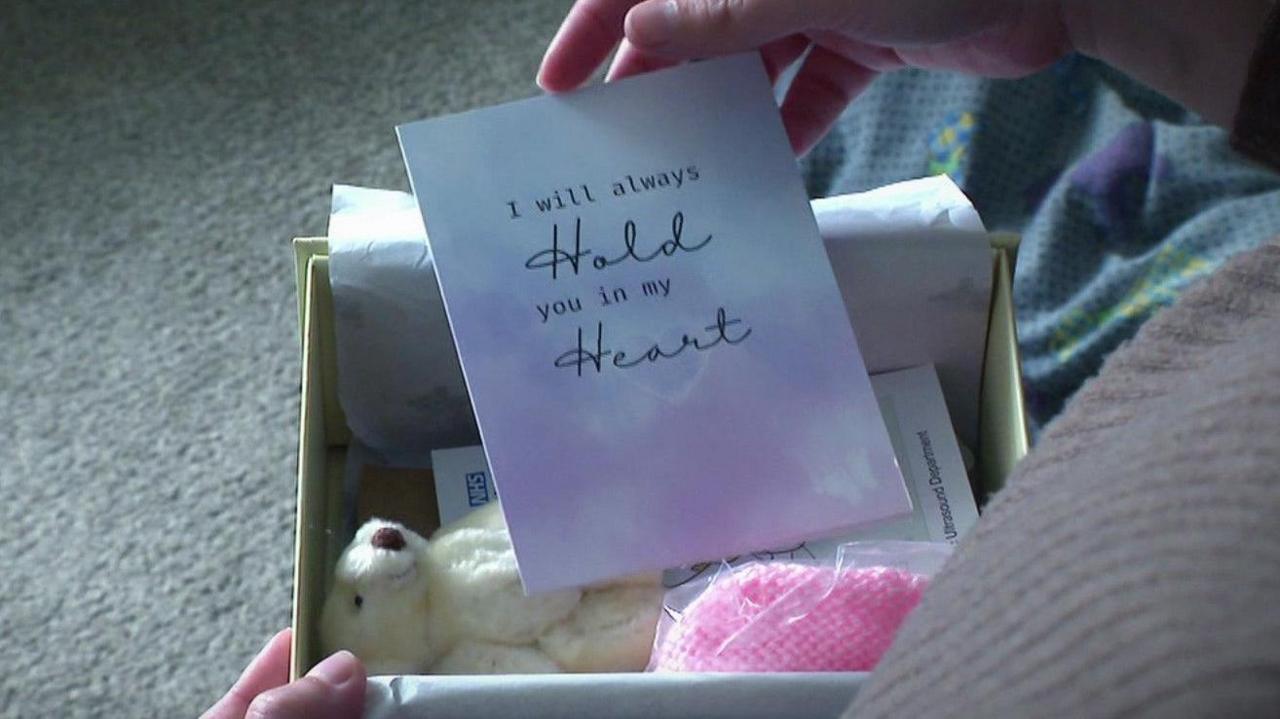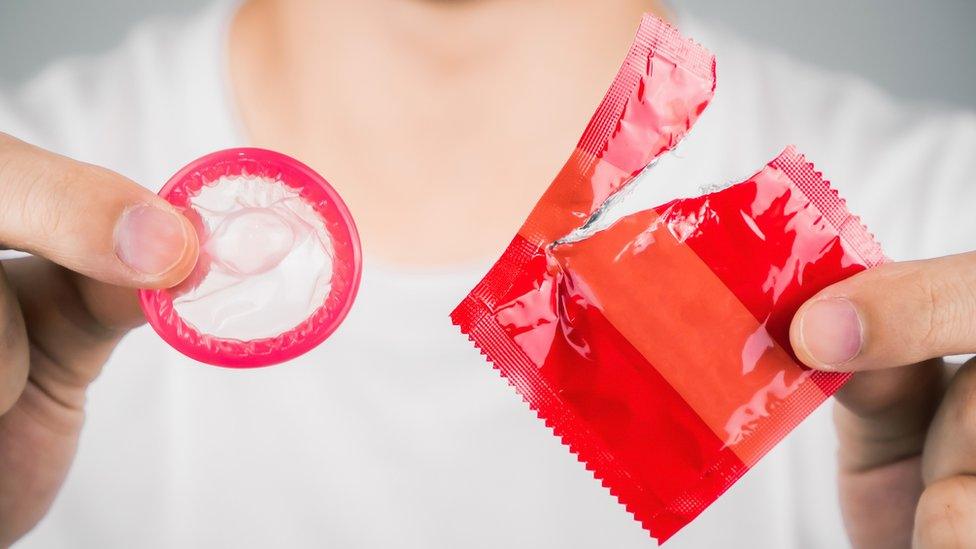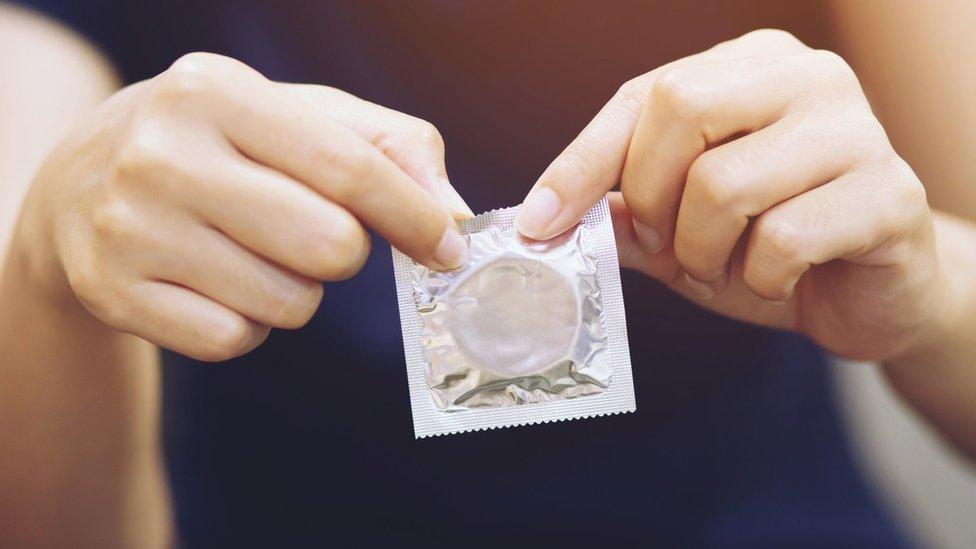'I lost my baby, I lost my marriage and I lost me'

Lauren had no idea she had the infections until after she lost her baby
- Published
A woman who lost her baby when she went into early labour due to unknowingly having contracted sexually transmitted infections (STI) has called for better screening.
Lauren, not her real name, said she had caught gonorrhoea and chlamydia from her husband but was only diagnosed after giving birth to her daughter prematurely at 18 weeks.
Currently, pregnant women are offered screening for three infectious diseases - hepatitis B, HIV and syphilis.
She said: "I lost my baby, I lost my marriage and I lost me."
Warning: This report contains descriptions and content some readers may find distressing

Better screening could help save other babies' lives, Lauren believes
Lauren, from West Yorkshire, became pregnant last June and had no problems until she started getting "a bit of weird discharge".
Doctors thought she had a urinary tract infection, but at 18 weeks her condition worsened to the point where the pain was "just horrendous".
Lauren was in so much pain that her mum took her straight to hospital.
"They got a wheelchair and rushed me straight down to delivery, to a room that I now know is a bereavement room. When we got there, I just remember looking at my mum and saying why are we in here?"
Doctors told Lauren that they could not save the pregnancy and if she did not deliver her baby, she would die.
“She was born in her sac, alive, sucking her thumb, moving.
"She was fully breathing unaided and moving her arms and legs.
"They passed her to me and I said, ‘ you need to help her’ and they just said ‘we’re not allowed’.
"I then just had to sit and hold her until she passed away.”
NHS guidance states, external that most babies born before 24 weeks cannot live because their lungs and other vital organs are not developed enough.
Campaign for routine screening
After an investigation into the death, Lauren was told the reason why she had lost her baby.
“She said 'I’m very, very sorry but you’ve tested positive for chlamydia and gonorrhoea'. I turned round and said 'you must be wrong', and that’s when it hit me.
"The only way that you can contract an STI is through having sex and the only person that I had sex with was my husband.
"He’d given me this and I didn’t know.”
Lauren has since ended her marriage and has been campaigning for routine STI screening for all women at the beginning of their pregnancy.
Her calls have been backed by Dr Claire Dewsnap, a consultant in genitourinary medicine at Sheffield Teaching Hospitals.
"Women don't routinely get offered a chlamydia and gonorrhoea test unless they are under a certain age, usually under 25."
"We would like all women to be offered a screening test for those diseases and we would like for that conversation to happen."
Lauren said: "It will save babies’ lives across the UK and it will save women from having to feel the way that I do every day.”

Dr Claire Dewsnap has backed calls for wider screening of infections
The Department of Health and Social Care (DHSC) said national screening programmes were recommended by the UK National Screening Committee (UK NSC) - an independent scientific group which advises ministers and the NHS across the UK on all aspects of screening.
The UK NSC has previously reviewed evidence and considered screening programmes for chlamydia and genital herpes but concluded in each case it should not be recommended.
A DHSC spokesperson said: "We are committed to supporting expectant mothers and would urge anyone pregnant concerned about their sexual health to contact their GP or a local sexual health clinic for advice."
The spokesperson added £25m was being invested in women's health hubs across England so they could get "better access to care and essential services".
How to get tested for an STI
Not all STIs have symptoms. There are several different places you can go to be tested:
A sexual health clinic (sometimes also called a GUM clinic)
Your GP surgery
A contraceptive and young people's clinic
A private clinic
Some tests are free to order online, external
Some can be bought from pharmacies to use yourself at home
Most STIs can be treated, although gonorrhoea is becoming increasingly resistant to antibiotics - with hard-to-treat so-called "super-gonorrhoea" infections emerging.
Some infections, such as HIV and herpes, can remain in the body but there are drugs available that can reduce or prevent symptoms or complications.
Follow BBC Yorkshire on Facebook, external, X (formerly Twitter), external and Instagram, external. Send your story ideas to yorkslincs.news@bbc.co.uk, external.
If you have been affected by the issues in this story, help and support is available via the BBC Action Line.
Related topics
- Published20 January 2024

- Published6 June 2023

- Published28 March 2018
